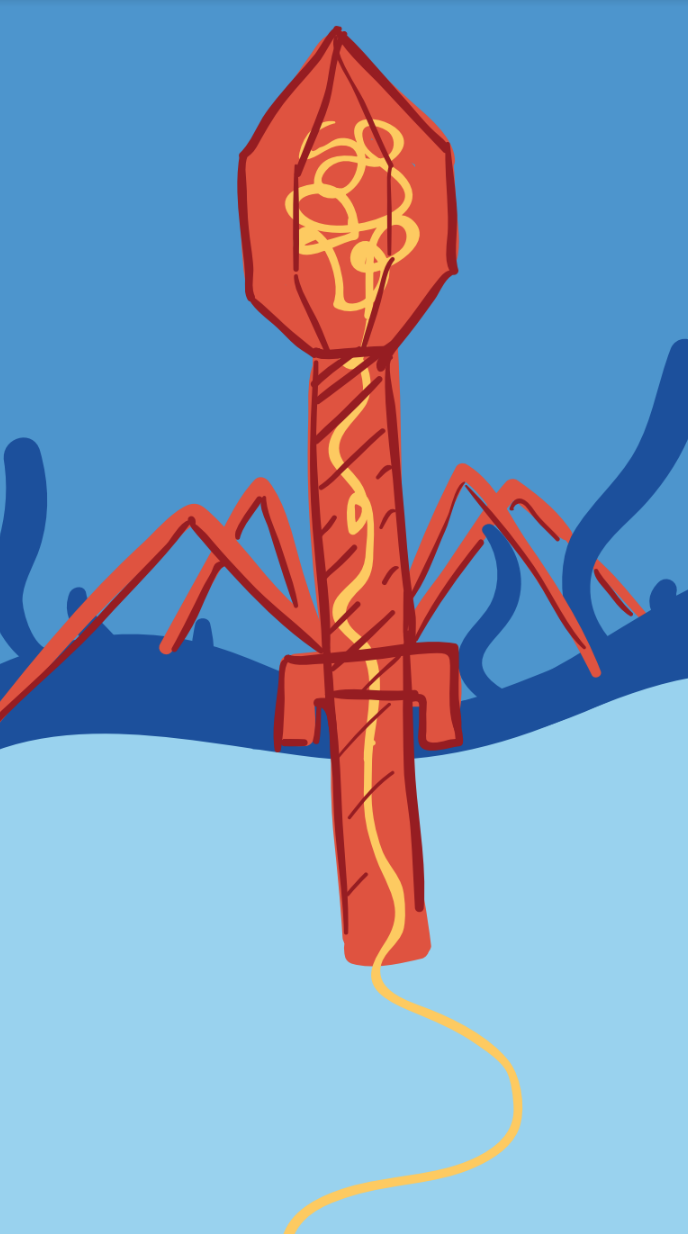Bacteriophages are viruses that infect bacteria and are a form of therapy to treat patients. They were first discovered in 1915 and later supported in 1917, however, the discovery of these viruses uses were shortly forgotten about.
When the discovery of antibiotics in 1928 there was less need for these viruses as treatment, until recently. Antibiotic resistance is becoming a prevalent problem for many patients and phage therapy is one of the alternatives to help this epidemic.
“This prospect of treatment known as phage therapy is still being developed but has shown promise,” Carlos Escoto-Diaz, a sophomore biology major, said. “Isabelle Holdaway received this treatment due to her cystic fibrosis. She had an onset bacterial infection which was preventing her lung transplant to develop… venturing into alternatives for phage treatments is also largely due to overuse of antibiotics, bacteria are becoming more drug-resistant everyday.”
However, the amount of bacteriophages on Earth is roughly about 10 to the 10 non million and only about two thousand of these phages have been founded.
So how does research keep up with this many phages?
The Science Education Alliance-Phage Hunters Advancing Genomics and Evolutionary Science program which was formed about twelve years ago is one of the biggest programs looking into phages.
Winthrop has its SEA-PHAGES program which is run by Dr. Victoria Frost, assistant professor of biology, and Dr. Kristi Westover, professor of biology.
The program is a two semester course in which freshmen have an opportunity to try out research and also contribute to the world of bacteriophages.
“I recommend freshmen to join this course because it’s a resume builder but also gives them feedback about research if they want to do it or not,” Bethany Wise, a sophomore biology said. “It’s really special because not everyone gets this opportunity. It helps the freshmen get involved in something right off that bat because that’s really important.”
Students will collect soil samples and eventually isolate these phages they discovered. Each year the program uses a specific bacterial host to have their phage infect. Once, isolated the phage’s DNA will be found and put into a database for other researchers to look at.
During the second semester two students phages will be further researched by being annotated in the bioinformatics course. This is where students delve in coding the genetics of the two phages.
The program at Winthrop is one of the many around the world.
“SEA-PHAGES is the only program where its in depth research on phages. This program is established in Puerto Rico to Switzerland and its internationally recognized,” Wise said.
Wise realized her passion from joining the program as an unknowing freshmen. She has had the opportunity to further look into the research and attend a conference for the program with Frost and Westover.
“I went to the National SEA-PHAGE Symposium [this summer]. [The conference center is] an HHMI where they do cognitive and phage research,” Wise said. “There were keynote speakers. It helped me grow because it gave me a sense of pride in what I was doing. In research there’s going to pits where you are not successful as you want and that conference told me ‘I am here for a reason and to continue what I am doing.’”
Graphic: Mars Hogue/ The Johnsonian




